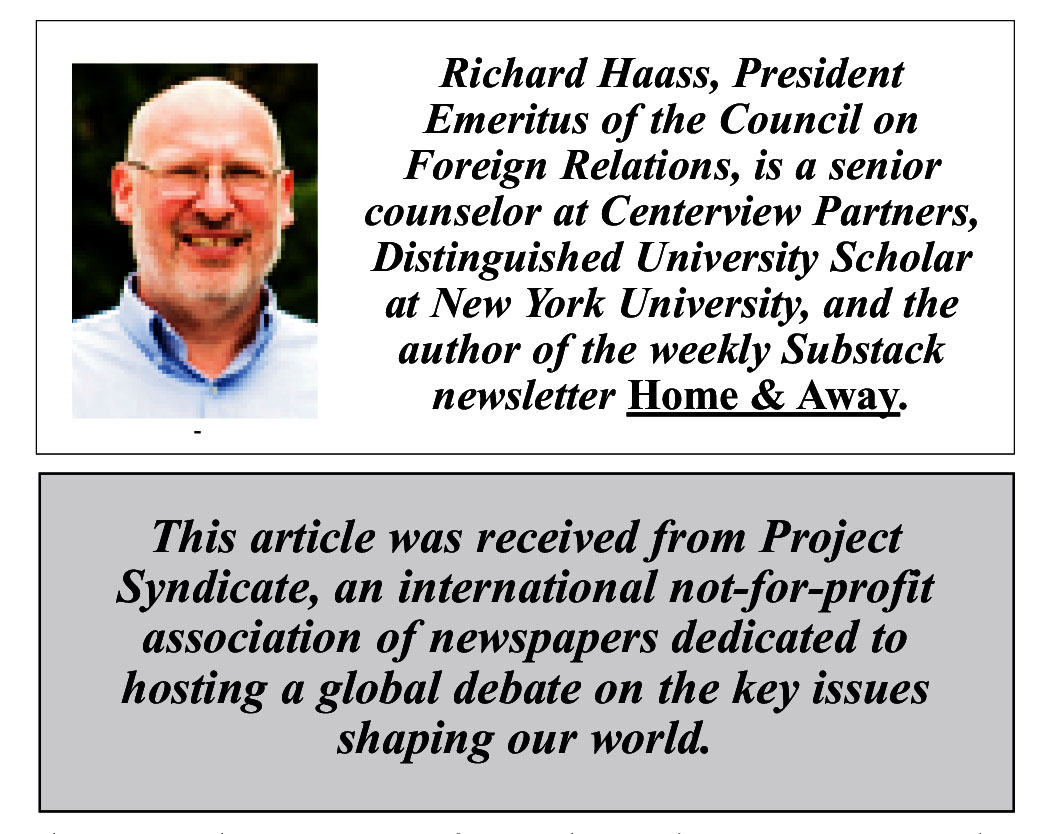By Stabroek News Steve Pincus
By Steve Pincus
CHICAGO – In late June and early July 1776, the Second Continental Congress framed, debated, and adopted the Declaration of Independence. The document announced the creation of a new American republic and established its defining principles: a commitment to free trade, free immigration, and internationalism.
As the United States celebrates its 249th birthday on July 4, the determination of President Donald Trump’s administration to abandon these founding principles has become starkly apparent. By doing so, they risk surrendering the key to America’s prosperity and geopolitical influence at a moment when the world has never appeared so unstable.
The Committee of Five – John Adams, Thomas Jefferson, Benjamin Franklin, Robert Livingston, and Roger Sherman – who drafted the Declaration of Independence condemned King George III for “cutting off our trade with all parts of the world.” Since George III’s accession in 1760, the British imperial government had erected tariffs and non-tariff barriers on American trade with the French and Spanish colonies in the Caribbean and South America, depriving Americans of a vital outlet for their products and access to hard currency.
This led Jefferson, in 1774, to implore Britain not “to exclude us from going to other markets.” The following year, Franklin called on the monarchy “to give us the same privileges of trade as Scotland received at the union [of 1707], and allow us a free commerce with all the rest of the world.” The Declaration echoed these sentiments: free trade was a central tenet of America’s founding document, albeit accompanied by state support for the development of new industries.
The authors of the Declaration also condemned George III for his misguided restrictions on immigration. Well-designed states, America’s founders believed, should promote the movement of people. They denounced George III for endeavoring to “prevent the population of these states” and reversing generations of imperial policy by “refusing to pass” laws “to encourage … migrations hither.”
By contrast, American patriots welcomed immigrants, who brought new skills to enhance production and immediately proved to be good consumers. “New settlers in America,” Franklin maintained, cleared farms and established villages and towns, creating “a growing demand for our merchandise, to the greater employment of our manufacturers.”
America’s founders declared their independence from Britain not because they wanted to turn their backs on Europe, but because, as the opening sentence of the Declaration says, they wanted to situate themselves “among the powers of the earth.” That way, European imperial powers such as the Dutch Republic, France, and Spain could support them in a global struggle against George III’s tyranny.
America’s founders sought internationalism, not isolation – a goal that many of their successors shared. On July 4, 1821, President John Quincy Adams – the son of one of the Declaration’s framers – reflected on the importance of America’s founding document when he claimed that its goal was “to form connections of friendship and of commerce with foreign nations.” Adams concluded that “never, never for a moment have the great principles, consecrated by the Declaration of this day, been renounced or abandoned.”
President Abraham Lincoln reinforced the view that the Declaration, more than any other founding document, outlines the principles of American government. In his first inaugural address on March 4, 1861, Lincoln declared that the US government was “much older than the Constitution.” A few weeks earlier, in the hall where the Declaration had been signed, Lincoln insisted that he had “never had a feeling politically that did not spring from the sentiments embodied in the Declaration of Independence.” Later, on July 4, 1864, Lincoln endorsed the free movement of people by signing into law the Act to Encourage Immigration.
No one truly committed to the original meaning of America’s constitutional document can abandon the principles of free trade, free immigration, or internationalism, as framed by Franklin and Jefferson, embraced by Adams and Lincoln, and presumably celebrated each year on the Fourth of July. But recent developments suggest that today’s political leaders are doing just that.
The Trump administration’s flurry of tariffs and trade barriers, terrorization and deportation of immigrants, and increasing isolationism are more reminiscent of George III’s policies than of those defended by America’s founders. Over the past 249 years, the US was arguably at its greatest when it fervently pursued its founding mission to guarantee the free flow of people and goods, and to build international alliances opposed to tyrannical and autocratic governments. As the country approaches its semiquincentennial, one fears that it is also approaching its nadir.
Copyright: Project Syndicate, 2025.
